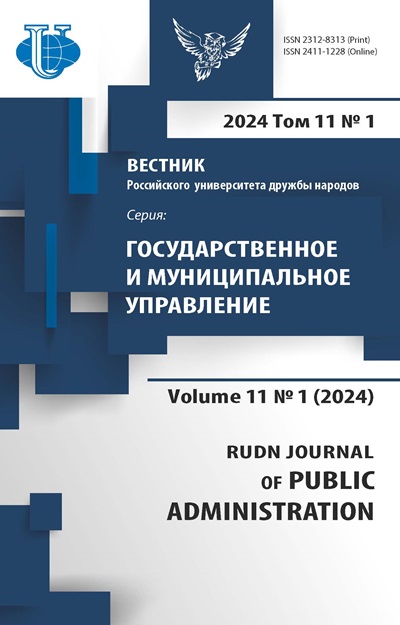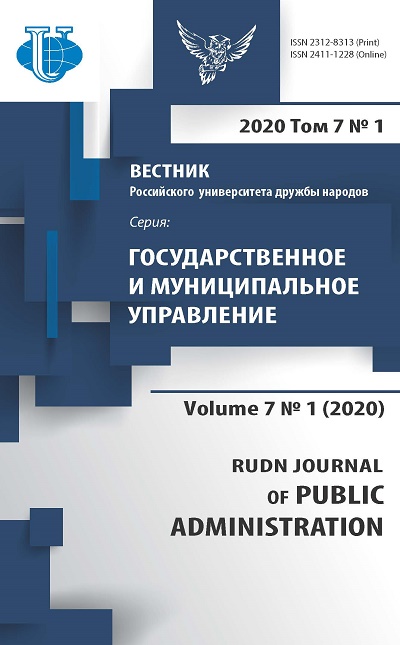Book review: : Fukuyama F. Political Order and Political Decay: From the Industrial Revolution to the Globalization of Democracy. NY: Farrar, Straus and Giroux, 2014. 672 p.
- Authors: Kumie G.A.1
-
Affiliations:
- Bahir Dar University
- Issue: Vol 7, No 1 (2020)
- Pages: 89-92
- Section: ACADEMIC LIFE
- URL: https://journals.rudn.ru/public-administration/article/view/23800
- DOI: https://doi.org/10.22363/2312-8313-2020-7-1-89-92
Cite item
Full Text
Abstract
The review of Francis Fukuyama’s book “Political Order and Political Decay: From the Industrial Revolution to the Globalization of Democracy” examines the processes of political development and modernization. “Political Order and Political Decay” is the second volume of a large-scale study. Both books adhere to the paradigm that a successful liberal democracy combines three main elements: the state, the rule of law, and accountability - and the balance between them is crucial. Fukuyama recognizes that there is a link between economic prosperity and democracy but does not claim that one automatically leads to the other. Fukuyama believes that Chinese phenomenal economic growth combined with an authoritarian government will not be able to persist, but does not conclude that a democratic revolution in China is inevitable. Fukuyama also became disillusioned with the possibilities of exporting democracy. The author warns that political decline is more pronounced in the United States than in other democracies, because the latter have demonstrated a greater ability to adapt to changing circumstances.
Full Text
“There is no automatic mechanism that produces clean, modern government”, Francis Fukuyama warns in his new book, “Political Order and Political Decay”. The soup of circumstance results in manifold variations in governance and strange anomalies that torment daily life. A few nations, like Denmark, are models of bureaucratic efficiency, but a larger number, like Nigeria, are exemplars of incompetence. While we all have a sense of what good government should be, we haven’t a clue how to get there. “Political Order and Political Decay” is the second volume in Fukuyama’s ambitious study of government. The first, “The Origins of Political Order,” started with chimps and ended with the French Revolution; this volume takes the story up to the present. Both books adhere to the paradigm that successful liberal democracy combines three essential elements: the state, rule of law and accountability. In other words, in the best of all possible worlds, central authority is kept in check by a transparent system of law and by the will of the people. Balance is crucially important. Fukuyama emphasizes that “all good things do not necessarily go together.” Thus, while his three elements are each intrinsically good, they often work at cross purposes. For example, Americans, obsessed with accountability, built a system of checks and balances so formidable that it has paralyzed governance. The result is what Fukuyama calls a “vetocracy,” in which small interest groups regularly block measures for the common good. Timing is also crucial. The United States, Fukuyama argues, “democratized before it had a modern state.” This resulted in a power vacuum at the top, which allowed patronage and corruption to thrive. The problem persists to this day but in entirely legal form. In no other country do paid lobbyists, out of touch with public sympathy, exert so much influence over government. The historian Arnold Toynbee once remarked that the past is “a chaos unamenable to . . . laws”. Fukuyama has, thankfully, ignored that adage. While his modesty prevents him from proposing strict laws of development, he does offer a plethora of intriguing theories that bring a semblance of order to Toynbee’s chaos. What makes this book so illuminating is the breadth of Fukuyama’s perception. In contrast to many popular theorists, he resists the temptation of the single big idea and instead argues, much more convincingly, that order and disorder result from the complex interplay of myriad factors, including identity, geography, commerce, tradition, climate and simple luck. Fukuyama accepts that a connection exists between prosperity and democracy, but is not so naive as to propose that one leads automatically to the other. He feels that the Chinese anomaly of phenomenal economic growth combined with authoritarian government cannot persist, but he does not conclude that a democratic revolution is inevitable. Nor does he believe that democracy can be exported. “We should. . . be wary of foreigners bearing gifts of institutions”, he argues. While Western models of development have been impressively successful at delivering justice and prosperity, “each society must adapt them to its own conditions and build on indigenous traditions”. That will always take time and enormous patience. Some readers will find this book disturbing, especially those Americans who feel certain that their nation is the last best hope on Earth. Fukuyama neither believes nor desires that the world should be recast in America’s image. “While the American economy remains a source of miraculous innovation, American government is hardly a source of inspiration”. Political decay, he warns, is more advanced in the United States than in other thriving democracies because the latter have demonstrated a capacity to adapt to changing circumstances. This, however, has been difficult for Americans because they regard their Constitution “as a quasi-religious document” and equate any questioning of the Founding Fathers with blasphemy. “Political Order and Political Decay” is a courageous book by an author at the peak of his analytical and literary powers. This project started as an attempt to rewrite and update Samuel Huntington’s classic “Political Order in Changing Societies”, published in 1968. Yet Fukuyama has what Huntington sorely lacked, namely the ability to communicate complex ideas through engaging prose. He’s both a perceptive political analyst and a wonderful storyteller. Clearly, something has indeed gone haywire in our world: Serious political science is not supposed to be so enjoyable.×
About the authors
Getahun Antigegn Kumie
Bahir Dar University
Email: getkumie@gmail.com
Lecturer and Researcher of the Department of Political Science and International Studies Bahir Dar, Ethiopia
References
















